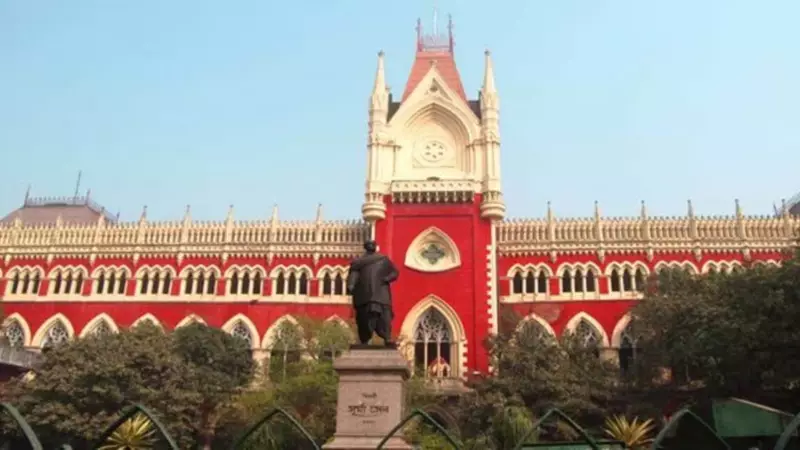
The Calcutta High Court has admitted two significant petitions challenging the recent assistant teacher recruitment process conducted by the West Bengal School Service Commission (WBSSC), raising serious questions about the inclusion of previously disqualified candidates and marking discrepancies.
Legal Challenge Against Recruitment Process
On Monday, advocate Firdous Shamim presented a petition before Justice Amrita Sinha's court, highlighting that several candidates whose selections in the 2016 WBSSC examination were declared "tainted" by the Supreme Court had managed to appear in the 2025 recruitment examination. This development comes despite clear directives from the apex court prohibiting such candidates from participating in fresh recruitment processes.
Shamim argued before the court that "some tainted candidates have still sat for the examination" contrary to Supreme Court orders. The petition also pointed out age-related inconsistencies, noting that some candidates claimed teaching experience despite being born in 1997, making such claims highly questionable.
Background of the Recruitment Scandal
The current legal battle has its roots in April 2025 when the Supreme Court took the drastic step of terminating 25,753 teaching and non-teaching staff from government-aided secondary and higher secondary schools. The court had declared the 2016 recruitment process fundamentally "tainted," leading to massive job losses across West Bengal's education sector.
Following an appeal by the state secondary education board, the Supreme Court allowed "untainted" employees to receive salaries until December 2025, while specifically barring 1,806 "tainted" teachers from returning to schools. The WBSSC subsequently published the names and roll numbers of these disqualified candidates on August 30 and released a separate list of 3,512 "tainted" non-teaching staff in November 2025.
Fresh Recruitment and Emerging Controversies
The WBSSC conducted its first recruitment examination since 2016 on September 14, 2025, with results declared on November 7. According to commission data, 2,29,606 examinees appeared across 478 venues in 35 different subjects.
On Saturday, November 15, the commission released a list of over 20,000 candidates shortlisted for interviews for assistant teacher posts at the higher secondary level (classes 11 and 12) in government-aided schools. The selection process considered written test scores (60 marks), academic performance based on postgraduate results (10 marks), and teaching experience (10 marks) for in-service teachers.
However, the published list immediately sparked controversy. Shamim highlighted multiple anomalies, stating, "Several tainted candidates are seen in the interview list. We also see that primary teachers and Health Department workers got 10 marks for experience."
Parallel Petition and Candidate Protests
In a separate plea presented before the same bench, another petitioner represented by counsel Tarunjyoti Tiwari alleged discrimination in awarding experience marks. The petitioner claimed that while some part-time teachers received additional marks for their teaching experience, he had been unfairly deprived of such benefits despite having similar qualifications.
Tiwari submitted to the court that "the petitioner is a part-time teacher and his colleagues have been given the marks. The petitioner has been deprived" of legitimate marks that would have improved his ranking in the selection process.
Meanwhile, examination candidates organized protests on Monday, attempting to march to Bikash Bhawan in Salt Lake. Police intervention prevented the protesters from reaching their destination. Many first-time examinees claimed they had secured perfect scores yet failed to receive interview calls, raising further questions about the selection methodology.
Deputy Commissioner of Police Aneesh Sarkar explained the police position: "We have requested them to hold a peaceful rally as they have not taken any permission. We have no problem if they want to give a deputation, but there is BNS 163 enforced around Bikash Bhawan, so not more than five people will be allowed."
Transparency Measures and Future Proceedings
The WBSSC has attempted to ensure transparency by publicly disclosing each candidate's scores across all three evaluation parameters: written test (out of 60), academic score (out of 10), and experience marks (out of 10). A senior commission official stated that the interview schedule would be announced shortly, with document verification for shortlisted candidates likely beginning on November 18.
According to the commission's recruitment notice, 23,312 assistant teachers will be recruited for classes 9-10 and 12,514 for classes 11-12. The current interview list follows a 1:1.6 ratio, meaning 16 candidates have been called for every 10 available positions.
Justice Amrita Sinha has admitted both petitions, with the matters scheduled for hearing on November 19. The court's decision could significantly impact the recruitment process that aims to fill 35,726 teaching positions across West Bengal's government-aided schools, as originally notified on May 30, 2025, following Supreme Court directives.






